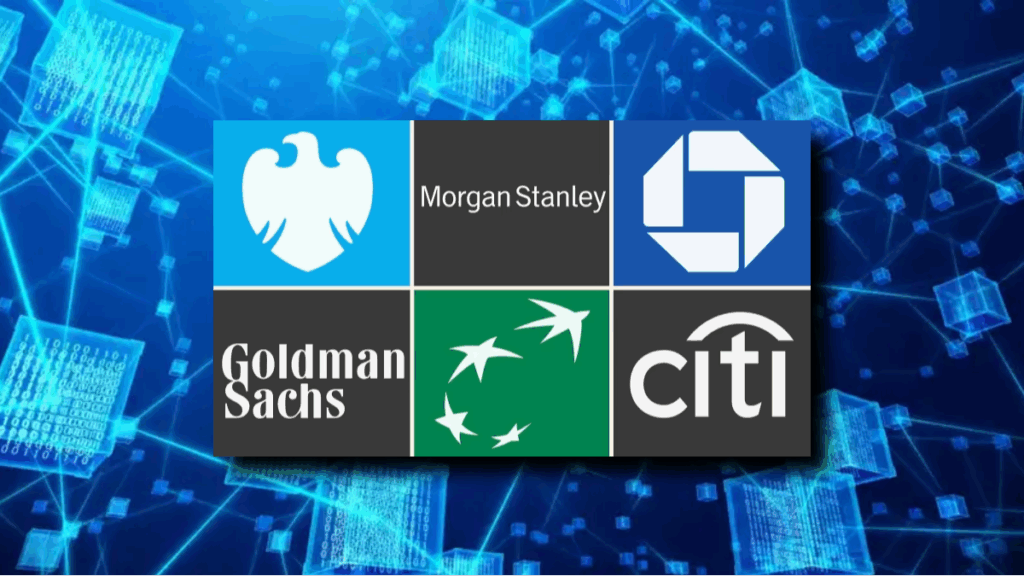TL;DR
- Global banking leaders like Citigroup, JPMorgan Chase, and Goldman Sachs are deepening investments in blockchain and tokenized assets.
- Between 2020 and 2024, major banks funded hundreds of blockchain initiatives, focusing on payments, trading, and custody.
- Analysts now project that tokenized real-world assets could reach a total market value of $18 trillion by 2033, transforming traditional finance with secure, efficient digital infrastructure.
A new report from Ripple, in collaboration with CB Insights and the UK Centre for Blockchain Technologies, highlights how some of the world’s biggest banks are not just exploring but actively shaping blockchain-based finance. Between 2020 and 2024, global systemically important banks (G-SIBs) participated in more than 100 investments in blockchain startups. Citigroup and Goldman Sachs led with 18 investments each, while JPMorgan Chase and Mitsubishi UFJ Financial Group followed closely behind.
Most of these investments went into early-stage companies developing tools for institutional trading, tokenization, payments, and digital custody. Unlike past hesitations, banks are moving beyond pilots and proofs of concept, working to embed blockchain solutions into their daily operations. Goldman Sachs and Citigroup, for example, have launched multiple partnerships exploring tokenized assets and improved capital markets frameworks.
Wall Street’s Growing Bet On Tokenization
JPMorgan Chase has stood out with its Kinexys network and pilot transactions using tokenized U.S. Treasuries, collaborating with Chainlink and Ondo Finance to test new rails for secure digital transactions. Other big names like Partior, a cross-border payments venture backed by JPMorgan and Standard Chartered, demonstrate how legacy players are seeking faster settlement and lower costs through decentralized systems.
The recent report also shows how banks prefer partnerships and equity stakes over full acquisitions, giving them flexibility while new technologies mature. Notably, the Boston Consulting Group predicts tokenized real-world assets will surge to over $18 trillion by 2033, driven by advances in smart contracts and stronger legal clarity across key jurisdictions such as the U.S., EU, UAE, and Singapore. This figure highlights just how significant blockchain’s impact could be for both investors and institutions that wish to modernize efficiently and securely.

Smaller regional banks are following suit, entering the blockchain arena through alliances with fintech startups and shared infrastructure projects. A U.S. survey found that even community banks are beginning to offer crypto-asset services, signaling broader adoption ahead.
As regulatory frameworks continue to evolve, the banking sector’s commitment to blockchain looks poised to redefine the way financial institutions operate, making transactions faster, more transparent, and more accessible worldwide for everyone involved.










